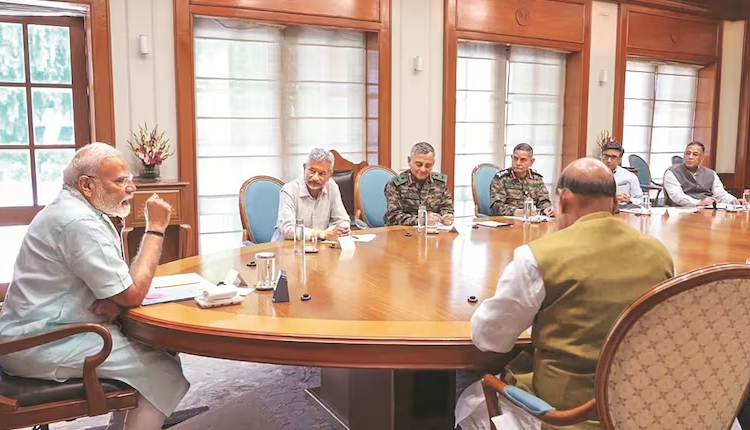New Delhi: Pakistan’s plea for calm came unexpectedly in the aftermath of widespread aerial bombardment inflicting extensive injury. This highlighted India’s resolute stance in the latest flare-up along their disputed border, sources affirmed on Sunday. The de-escalation required no external mediation and was accomplished without outside arbitration, despite claims from US President Donald Trump suggesting otherwise.
The altercation, with its roots in a sequence of mutually aggressive actions, originated when India carried out exact assaults on terrorist hideouts across the divide on May 6-7. Pakistan retaliated with attempted assaults on Indian military installations over the next three days, all rebuffed. India’s reaction was fierce, targeting crucial Pakistani defence infrastructure, like airfields, air defence systems, command centres, and radar sites, which resulted in significant damage.
Sources revealed that the extent of India’s counterstrikes had compelled Pakistan to reconsider its approach. On Saturday, Pakistan’s Director General of Military Operations (DGMO) reached out to his Indian counterpart, initiating discussions to halt hostilities. Within hours, both sides agreed to an immediate cessation of all military actions across land, air, and sea. Foreign Secretary Vikram Misri formally declared the ceasefire later that evening, stating that the arrangement had been reached directly between the two nations’ military leadership.
The swift resolution undercut President Trump’s claims for brokering the truce. Trump depicted the ceasefire as the result of a “long night of talks” facilitated by the U.S. However, Indian sources dismissed these assertions, with one official noting that Trump tends to exaggerate his role in global affairs. US Secretary of State Marco Rubio reportedly acknowledged the reality in a call with India’s External Affairs Minister, Dr S. Jaishankar. He admitted that Pakistan’s military setbacks had prompted its plea for peace.
The agreement has restored fragile calm, but underlying tensions remain. Indian officials have firmly rejected speculation about third-party mediation on broad issues, especially Jammu and Kashmir. One source stated bluntly, “There’s no question of discussing Kashmir with Islamabad. The only conversation we’re open to is Pakistan vacating the parts of Jammu and Kashmir it illegally occupies.” The official added that any such discussion would be direct, with no need for intermediaries.
The ceasefire marks a pause in a volatile chapter in India-Pakistan relations. However, the absence of a deeper diplomatic framework suggests that stability in the region remains precarious. For now, military realities, rather than external pressures, have driven both nations back from conflict.



Comments are closed.